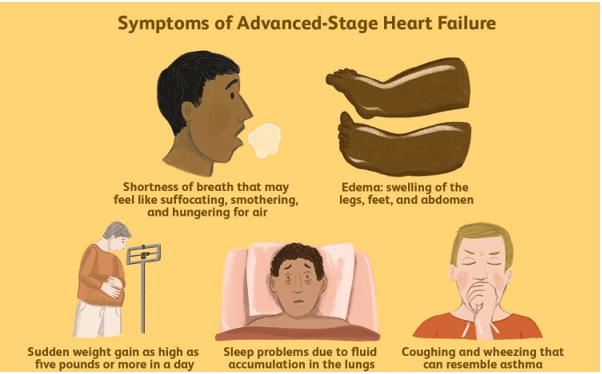A nurse is reinforcing teaching about advance directives with a client who has end-stage heart failure.
Which of the following statements by the client indicates an understanding of the teaching?
I should discuss this document with my family after I sign it.
I am not allowed to change my mind once I sign this document.
An atorney will need to notarize this document for it to be valid.
My partner needs to be present when I sign this document.
The Correct Answer is A
a. "I should discuss this document with my family after I sign it"
Advance directives are legal documents that allow an individual to specify the type of medical care they want to receive in case they become unable to make their own decisions. It is important for the client to discuss their wishes with their family members or loved ones so that they are aware of the client's desires and can act accordingly in case of an emergency.
b. "I am not allowed to change my mind once I sign this document" is incorrect. The client can change their mind about their advance directive at any time and for any reason. It is important for the client to review their advance directive periodically and make changes as necessary.
c. "An atorney will need to notarize this document for it to be valid" is also incorrect. While some states require advance directives to be notarized or witnessed, not all states do. It is important for the client to check with their state's laws regarding advance directives to ensure that their document is legally binding.
d. "My partner needs to be present when I sign this document" is not necessarily true. While it is recommended for the client to have a witness present when signing their advance directive, it does not have to be their partner. The witness should be someone who is not a family member, healthcare provider, or beneficiary of the client's estate.

Nursing Test Bank
Naxlex Comprehensive Predictor Exams
Related Questions
Correct Answer is C
Explanation
An incident report is a formal document used to report any unexpected or adverse events that occur during patient care. In this case, the administration of an incorrect dosage is an incident that should be documented in the incident report. The incident report serves as a record of the event and helps to ensure that appropriate follow-up actions are taken to prevent similar incidents in the future. It is important to note that an incident report is not part of the client's permanent medical record and is kept separate from other documentation.
The provider's progress notes, nursing care plan, and controlled substance inventory record are not appropriate locations to document this specific incident. The provider's progress notes are typically used to document the client's medical history, examination findings, treatment plans, and progress. The nursing care plan is a document that outlines the client's nursing diagnoses, goals, and interventions. The controlled substance inventory record is used to track and document the dispensing and administration of controlled substances, but it does not typically include incident reporting.
Correct Answer is D
Explanation
The first action the nurse should take in this situation is to assess the client's condition for any injuries or signs of distress. Therefore, the nurse should measure the client's vital signs to determine if there are any immediate concerns such as hypotension or tachycardia. After ensuring the client's safety and addressing any immediate needs, the nurse should complete an incident report and document the fall in the client's medical record. The provider may also need to be notified depending on the severity of the fall and any resulting injuries.
Whether you are a student looking to ace your exams or a practicing nurse seeking to enhance your expertise , our nursing education contents will empower you with the confidence and competence to make a difference in the lives of patients and become a respected leader in the healthcare field.
Visit Naxlex, invest in your future and unlock endless possibilities with our unparalleled nursing education contents today
Report Wrong Answer on the Current Question
Do you disagree with the answer? If yes, what is your expected answer? Explain.
Kindly be descriptive with the issue you are facing.
